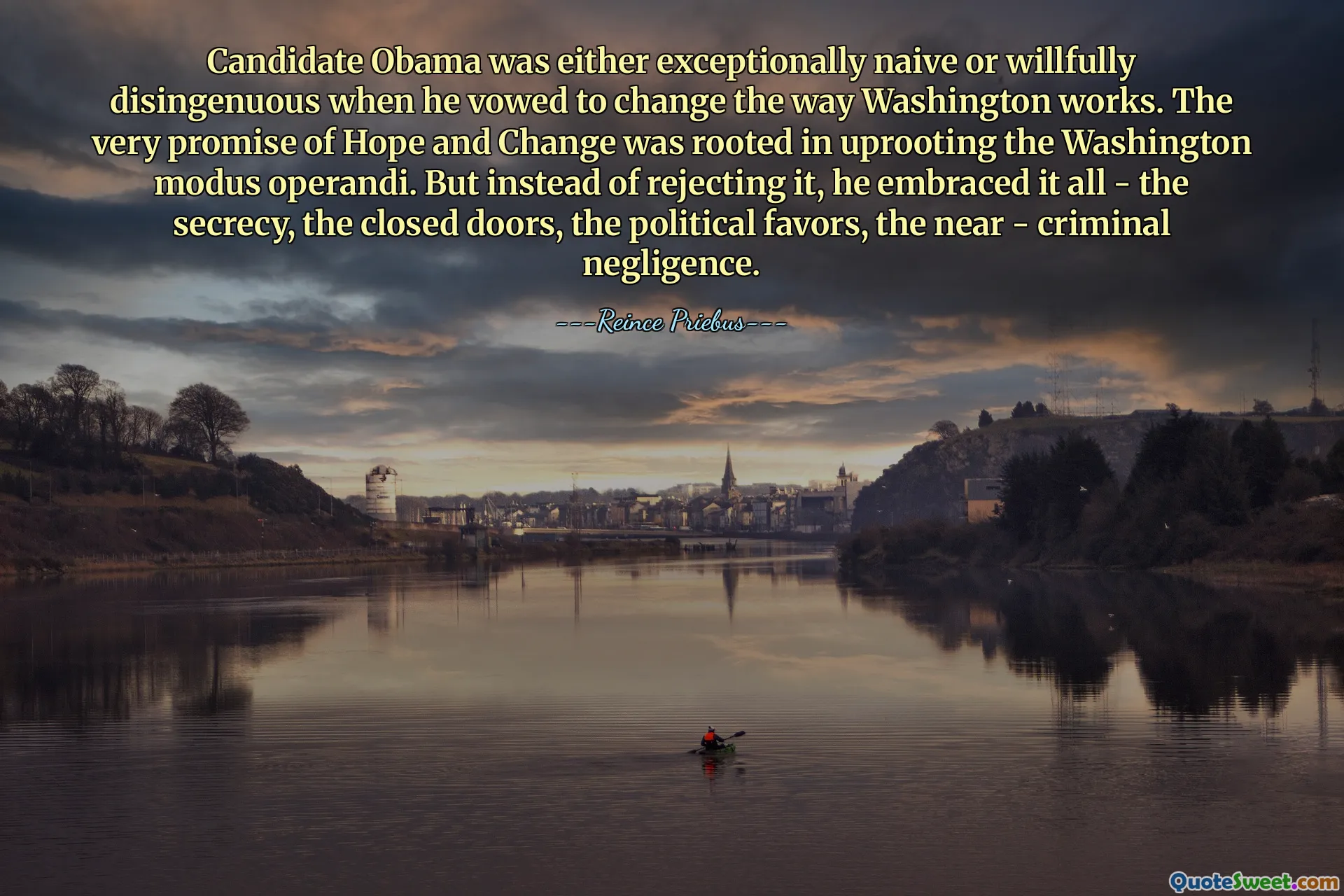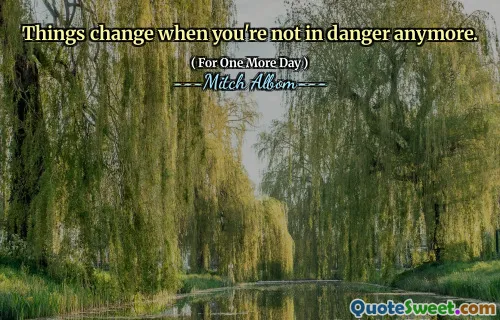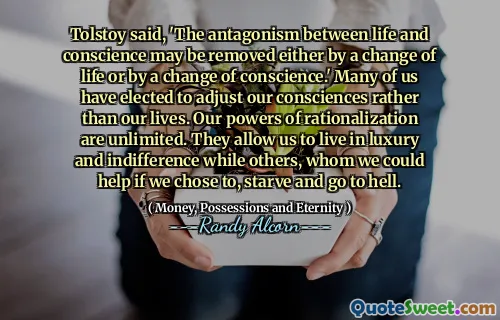
Candidate Obama was either exceptionally naive or willfully disingenuous when he vowed to change the way Washington works. The very promise of Hope and Change was rooted in uprooting the Washington modus operandi. But instead of rejecting it, he embraced it all - the secrecy, the closed doors, the political favors, the near - criminal negligence.
This quote reflects a deep skepticism about President Obama's campaign promises versus the reality of his actions once in office. It suggests that the commitment to transforming the political landscape was either based on naive idealism or was a calculated form of disingenuousness. The phrase 'Hope and Change' resonated widely, symbolizing a desire for a political overhaul rooted in transparency, honesty, and accountability. However, the critique points out that instead of dismantling the entrenched practices of secrecy, favoritism, and negligence prevalent in Washington, the administration seemingly continued or even embraced these very elements. This disconnect between rhetoric and reality raises questions about the efficacy of sloganeering in political campaigns when concrete change is lacking. Such commentary underscores the cynicism that can permeate political discourse when expectations are high but the perceived outcomes fall short. It also highlights the ongoing challenge in American politics: the difficulty of translating promises of reform into tangible actions that dismantle systemic issues. Ultimately, the quote challenges both the administration and the electorate to consider whether true change is feasible within existing power structures or if such promises are often just political optics with little substance behind them.











